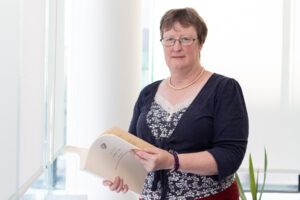
Hi Sarah. Can you tell us a little about your role at Companies House.
I am the Director of Strategy, Policy and External Communications at Companies House – I joined last July after heading up Business and International Policy at the UK’s Intellectual Property Office (IPO).
This is a really exciting role, where I not only get to work with passionate colleagues within Companies House, but I’m also incredibly lucky to be responsible for our international engagement too. During my time at the IPO I had the honour of chairing a committee at the World Intellectual Property Organization, and I saw first-hand how beneficial international collaboration can be.
My directorate at Companies House covers:
- Developing our policy across 3 legal jurisdictions (England and Wales, Scotland, and Northern Ireland), including how we implement our exciting new Economic Crime and Corporate Transparency Act,
- planning and implementing our organisational strategy, and
- telling our story to the world.
You recently attended the EBRA Working Group on Company Law and Open Data for the first time. How did you find it?
Firstly, I am a huge enthusiast for international cooperation so it was fantastic for me, on a personal level, to be surrounded by colleagues from so many jurisdictions, sharing experiences and learning from one another. What an uplifting experience!
Secondly, for the last two years Companies House has been working on transformative new legislation, the Economic Crime and Corporate Transparency Act and throughout this process it is fair to say we’ve bumped up against a few challenges along the way.
So, it was really reassuring to hear that the challenges we’ve faced around drafting and implementing the new legislation were echoed by so many others around the table at the working group. Almost like group therapy! But it also highlighted areas where we can tackle these challenges more effectively if we work together.
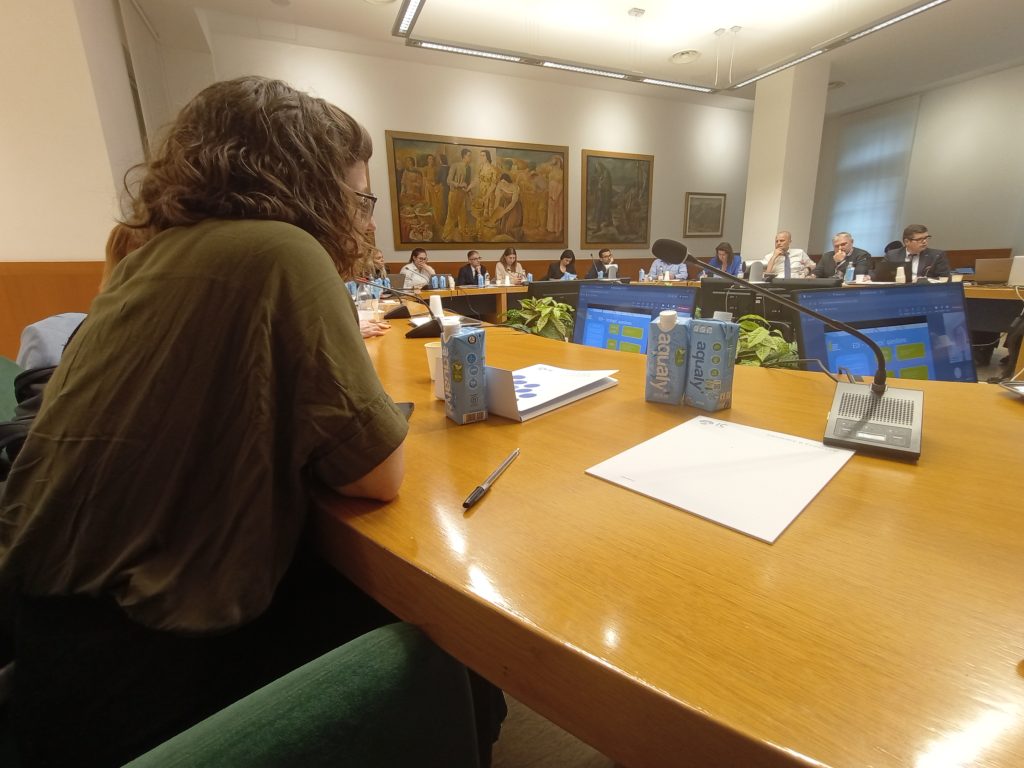
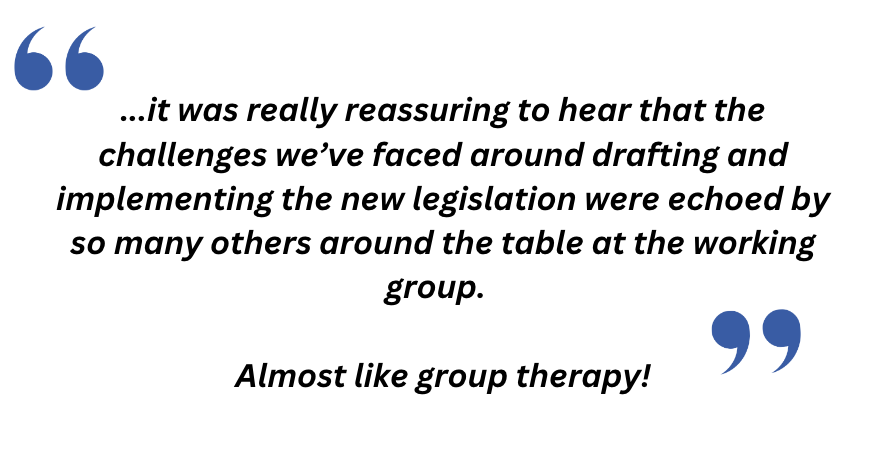
You mention your new legislation, could you tell us a little more about it?
Of course. So, you can think of our recent reforms as taking two steps.
Step one was the fast-tracked introduction of the Economic Crime (Transparency and Enforcement) Act 2022. Among other things, this introduced our Register of Overseas Entities (ROE) which is essentially an additional Beneficial Ownership register requiring overseas entities owning land or real estate in the UK to register their beneficial owner. It’s quite powerful, and as well as fines for non-compliance, we can prevent the sale of the property if the beneficial owner doesn’t register with us.
Step two introduced our wider, far-reaching reforms through the Economic Crime and Corporate Transparency Act 2023. This completely overhauls Companies House’s role from, essentially, a passive library to a more proactive guardian. Our three Registrars (England and Wales, Scotland and Northern Ireland) will now not only have increased powers to ensure the integrity of our registers, but a duty to do so too.
The Act tightens the rules around who can be a director, introduces a new requirement for their identity to be verified, and for proof that their Registered Office Address is theirs to use. We also have far more wide-ranging powers to query, check and reject the information provided to us and increased penalties (criminal and civil) for non-compliance.
That sounds like a lot of work…
Yes, it’s been an interesting time to join Companies House for sure! We’ve had to transform our whole organisation to align with our new powers, while also maintaining the really high standards of customer service we’re so proud of.
There’s also been a tremendous effort by my team, not only to help write the new legislation, but to provide guidance for operational colleagues responsible for implementing the policy. Our External Communications team have also been engaging with stakeholders across the country, and across the globe, to explain the changes.
Companies House has always played a big role in EBRA but the nature of the UK’s relationship with the EU has changed in recent years. What does that mean for you?
Great question. I think it’s really important to underline just how important EBRA and engagement with our European colleagues is to us. Beneficial ownership and the tension between transparency and privacy, the fight against money laundering and economic crime, and the opportunities presented by new technology are common to all of us.
EBRA provides the most amazing platform to enable peers from across the corporate registry world to come together, cooperate and discuss these challenges together. The threats and opportunities are the same, even if the legal framework sometimes differs – I really value the ability to hear about and learn from the incredible work being done across our continent from such experts and I’m so excited about the future!
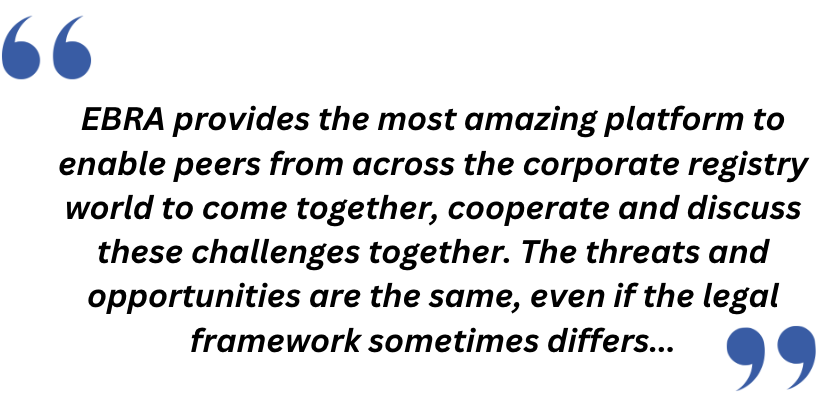
Thank you for your time, Sarah. We look forward to seeing you again soon.
